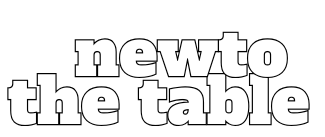Buying a house can feel like preparing for a marathon—exciting yet daunting. With house financing, it’s not just about finding the perfect home; it’s about navigating a maze of loans, interest rates, and paperwork that could rival a novel. But don’t worry! With the right guidance, this journey can turn into a thrilling adventure rather than a horror story.
Table of Contents
ToggleUnderstanding House Financing
House financing involves securing funds necessary for purchasing a home. This process includes various loan options, interest rates, and terms tailored to individual buyer needs.
What Is House Financing?
House financing refers to methods used to obtain the funds needed to buy a home. Mortgages represent the most common form, where a financial institution provides a loan secured by the property. Lenders evaluate credit scores, debt-to-income ratios, and overall financial health before approval. Options like fixed-rate and adjustable-rate mortgages cater to varying buyer preferences. Additional financing methods, including FHA loans and VA loans, offer specialized benefits for eligible buyers.
Importance of House Financing
House financing plays a critical role in the home-buying process. Access to financing determines the ability of potential buyers to purchase property. Properly understanding financing options can lead to significant savings on interest rates and repayment terms. Excellent financing conditions can facilitate affordability and homeownership stability. Additionally, this knowledge helps buyers navigate complex mortgage processes, make informed decisions, and ultimately secure their ideal homes.
Types of House Financing Options


Various financing options exist for purchasing a home, each tailored to different buyer needs and financial situations. Understanding these options can simplify the home-buying experience.
Conventional Loans
Conventional loans serve as a primary choice for many buyers. Lenders offer these options without government backing, relying instead on private mortgage insurance when down payments fall below 20%. Borrowers with strong credit scores and stable income may secure competitive interest rates. Fixed-rate and adjustable-rate mortgages are common forms, allowing for predictable payments or flexibility depending on market conditions. It’s crucial for buyers to assess their financial situation and long-term plans before deciding on a conventional loan.
FHA Loans
FHA loans provide affordable financing for first-time buyers and those with lower credit scores. With down payments as low as 3.5%, these loans lower the barrier to homeownership. Borrowers must pay an upfront mortgage insurance premium along with monthly premiums, but benefits include more flexible credit requirements. FHA loans enable buyers to finance both single-family homes and certain multi-unit properties. Understanding the associated costs is essential for making informed decisions when choosing an FHA loan.
VA Loans
VA loans cater specifically to veterans, active-duty service members, and certain National Guard members. No down payment is required, making these loans highly attractive for eligible individuals. Additionally, VA loans do not require mortgage insurance, leading to lower monthly payments. Interest rates often remain competitive compared to conventional loans. Understanding the eligibility criteria ensures that veterans take advantage of these valuable financing options.
USDA Loans
USDA loans target rural and suburban homebuyers seeking affordable financing solutions. Eligible applicants can benefit from zero down payment and reduced mortgage insurance costs. The program is limited to low- to moderate-income households while promoting homeownership in designated rural areas. Additionally, these loans come with competitive interest rates, making homeownership more accessible. Knowing the specific requirements can help buyers navigate the USDA loan process efficiently.
Factors Affecting House Financing
Several factors play a crucial role in determining house financing options. Understanding these aspects enables buyers to make informed decisions.
Credit Score
Credit scores significantly influence financing opportunities. Lenders evaluate credit scores to assess an applicant’s creditworthiness. A score above 700 often results in better loan terms and lower interest rates. Buyers with scores below 620 might face challenges in securing loans or incur higher costs. Regularly checking and improving one’s credit score can yield substantial benefits during the financing process.
Down Payment
The down payment amount impacts mortgage choices and terms. Typically, a down payment of 20% offers favorable loan conditions, eliminating private mortgage insurance. Many lenders accept lower down payments, ranging from 3% to 5%, but borrowers should expect higher monthly payments and possible insurance costs. The size of a down payment affects overall affordability and influences monthly budgeting for homeowners.
Interest Rates
Interest rates directly affect the total cost of a home over time. Market conditions, economic indicators, and individual creditworthiness all contribute to the rates lenders offer. Lower rates translate to reduced monthly payments, leading to significant savings throughout the loan’s duration. Monitoring trends in interest rates allows buyers to time their home purchase strategically for the best financial advantage.
Process of Securing House Financing
Securing house financing involves several critical steps that guide buyers through the lending process. Each stage has its unique requirements and implications, making understanding these phases essential for success.
Pre-Approval
Pre-approval represents the initial step in the financing journey. Lenders assess buyers’ creditworthiness by reviewing credit scores and financial histories. At this stage, a mortgage lender provides a conditional commitment for a specified loan amount. This process typically requires documentation, including income verification and tax returns. Obtaining pre-approval enhances a buyer’s credibility, making them more competitive in the housing market. It offers a clearer picture of budget constraints, which helps in narrowing down property choices. With pre-approval, buyers gain confidence in their purchasing power.
Loan Application
The loan application phase follows pre-approval and involves submitting a detailed application to the chosen lender. Buyers need to provide comprehensive financial information, including employment details, assets, and debts. Lenders perform a thorough analysis during this stage, assessing credit risks and determining loan eligibility. Completing this application accurately streamlines the process, allowing for quicker processing times. Buyers often encounter additional documentation requests from lenders, necessitating prompt responses. A well-prepared application increases the likelihood of favorable loan terms, strengthening the buyer’s position in negotiations.
Closing Process
The closing process finalizes the home-buying transaction. Buyers, sellers, and lenders participate in this critical meeting to review and sign all necessary paperwork. Closing costs, including fees for appraisals, inspections, and title insurance, become due at this time. A closing agent typically facilitates this meeting, ensuring all legal requirements are met. Buyers receive a detailed settlement statement outlining costs associated with the transaction. Once all documents are signed and payments made, ownership transfers to the buyer. This successful completion marks the culmination of the financing process, allowing buyers to move into their new homes.
Navigating house financing is a crucial step in the home-buying journey. By understanding various loan options and their requirements buyers can position themselves for success. It’s essential to monitor credit scores and be aware of down payment implications as these factors significantly influence financing opportunities.
With the right knowledge and preparation buyers can turn what may seem like a daunting process into an exciting milestone. Embracing this journey with confidence can lead to better financial outcomes and a smoother transition into homeownership.








